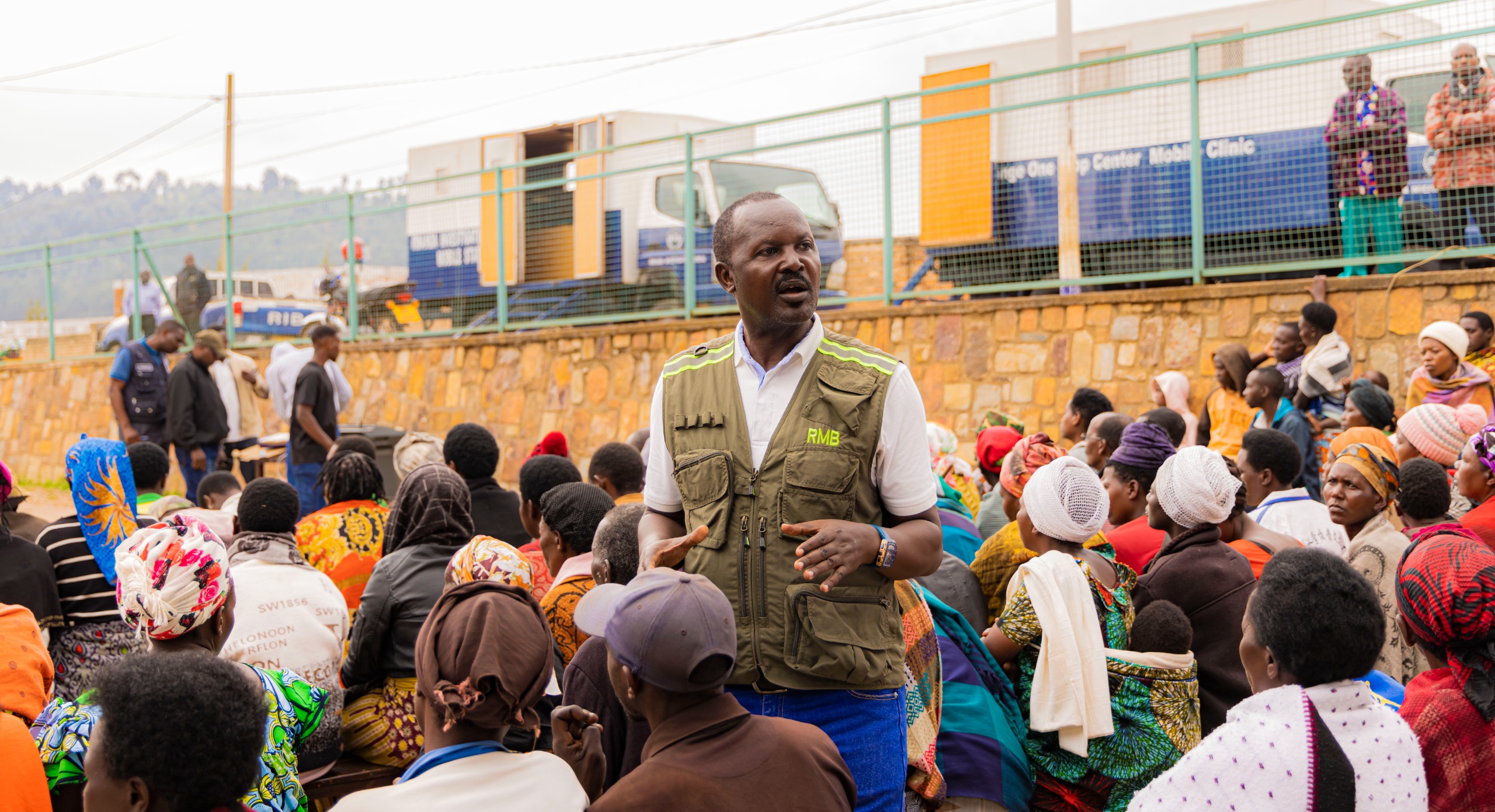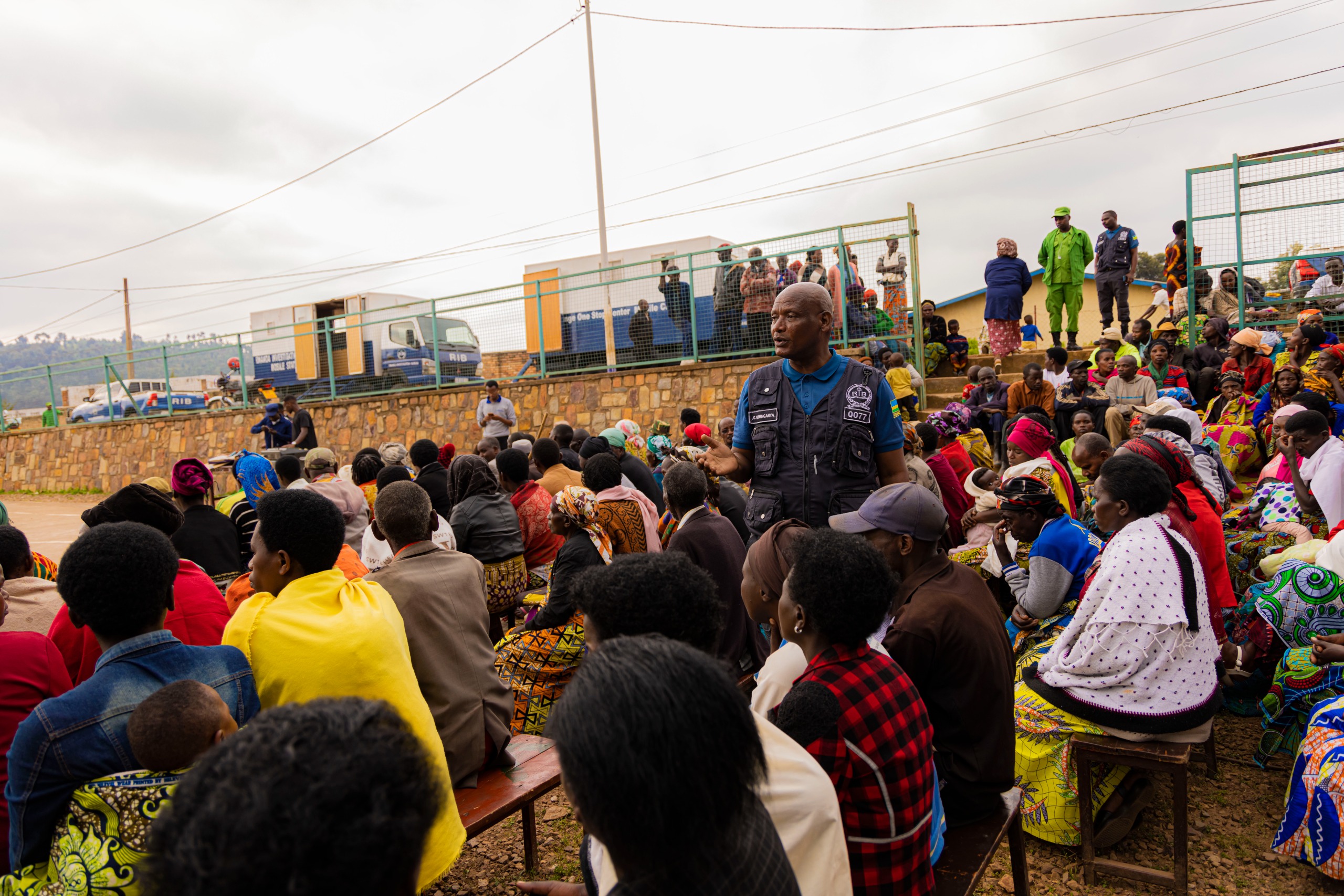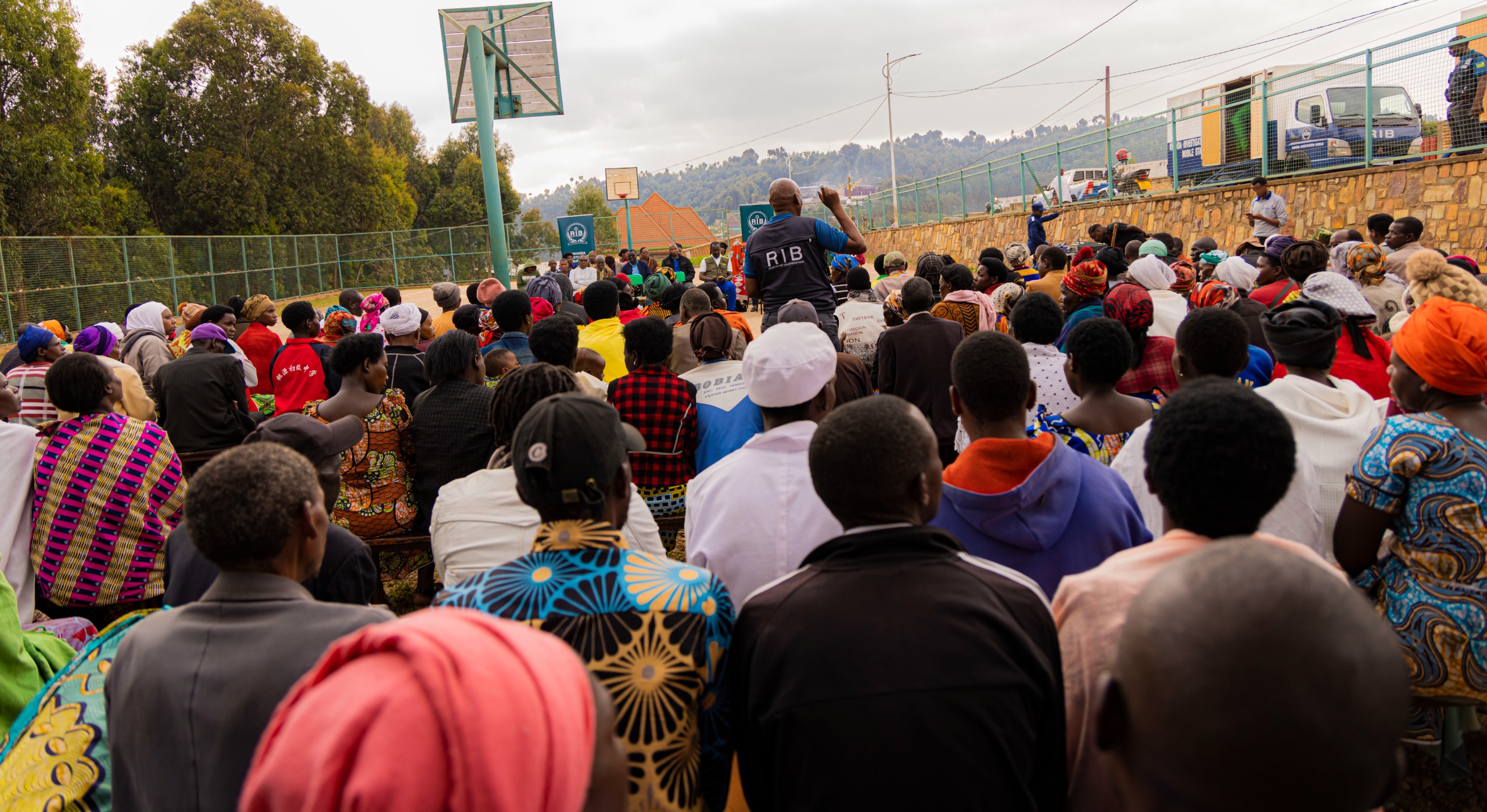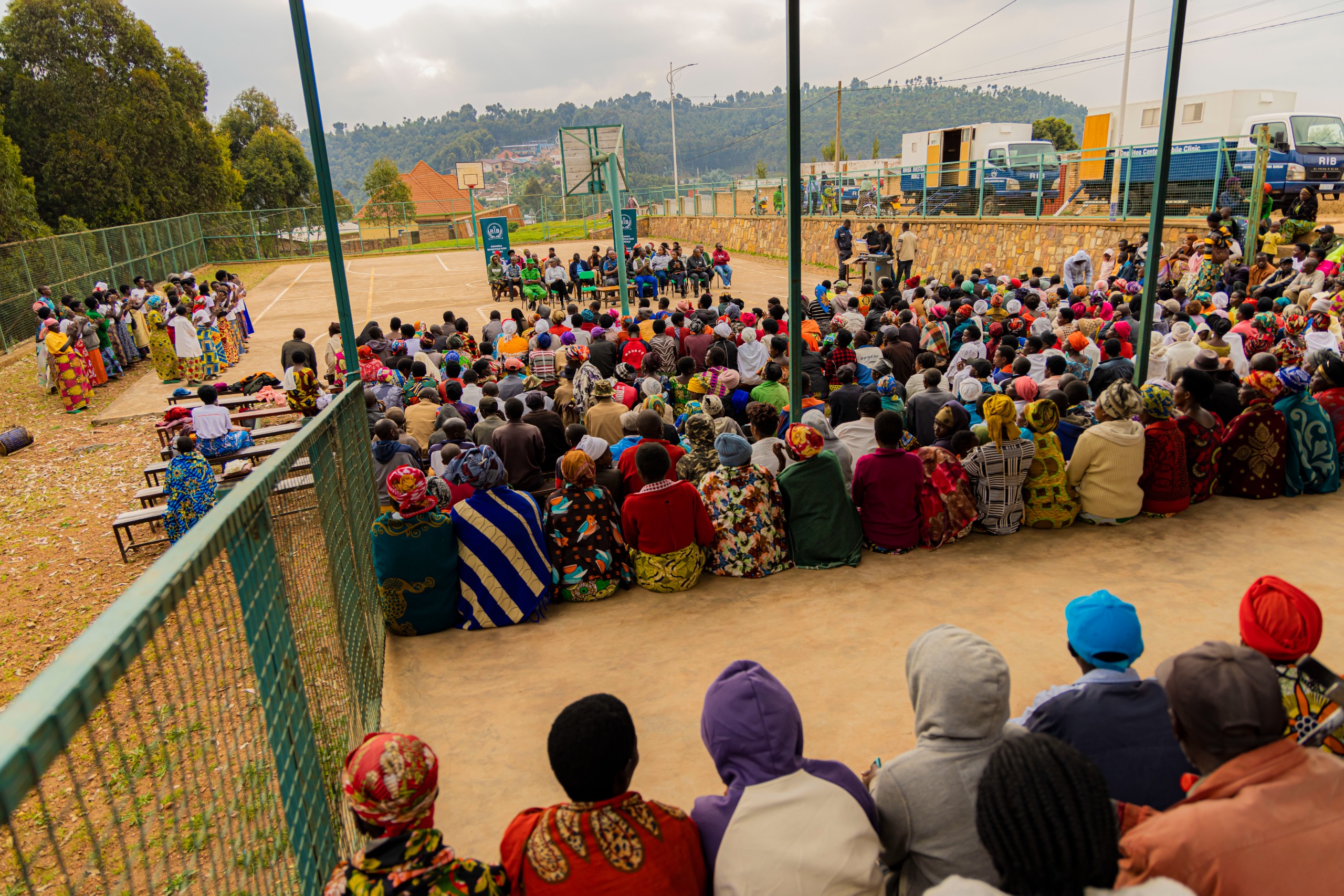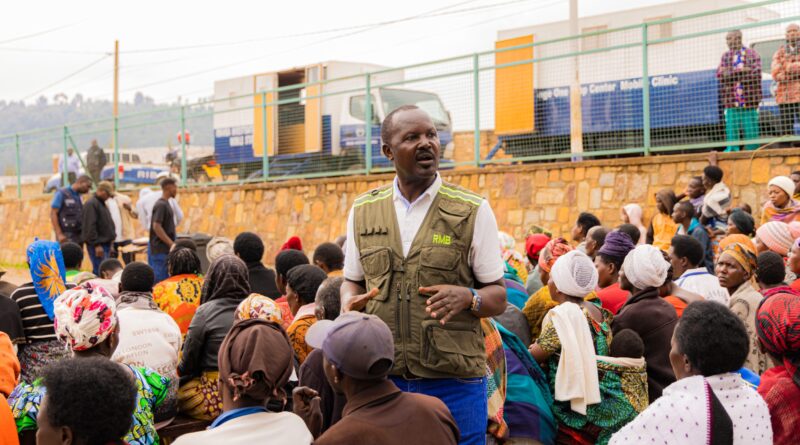Gicumbi citizens Sensitized on legal Mining practices, commit to responsible resource use
The Rwanda Mining Board (RMB) in collaboration with the Rwanda Investigation Bureau (RIB) conducted a public awareness campaign in Gicumbi District, aimed at educating citizens on the legal framework and practices surrounding mining and quarrying activities.
Held on Wednesday, July 9, 2025, in Kageyo Sector, the outreach gathered a large number of residents who were taken through national policies, laws, and procedures that guide mining from the discovery of minerals on private land to licensing for mining or trading.
Participants were warned about the dangers of illegal and informal mining, including environmental degradation, destruction of farmlands, and increased risks of floods, landslides, fatalities, and chronic illnesses.
Officials also emphasized that unauthorized mining not only violates national laws but results in long-term economic loss for the individuals involved.
Many attendees admitted to previously engaging in certain practices unaware that they were punishable by law.
They pledged to adopt new measures, such as reporting illegal miners and refraining from hiding such activities, noting that the consequences often fall back on the community.
“We used to see people extracting sand and assumed it was harmless since it was from their own land. We didn’t know that anything under our soil belongs to the government,” said Mukagasasira Mediatrice, one of the participants.
“Now we understand that illegal mining destroys the environment and endangers lives. We’re committed to fighting it.”
Similarly, Mukeshimana Anne Marie expressed shock at the severe penalties prescribed by law for unlicensed mining, calling for public caution.
“Illegal mining is almost like suicide,” she said. “From health complications to long-term imprisonment, huge fines, and mandatory land restoration, the risks are just too high. We didn’t know before, but now we do. Anyone still doing it is simply ignoring reality.”
Jean D’Amour Bagirijabo, Director of Inspection at RMB, explained that the campaign is part of a nationwide effort targeting areas where illegal mining is most prevalent.
“We’re here to raise awareness about the role of RMB, especially in licensing. We want people to know that those who don’t comply with the law, including licensed companies that fail to restore mined areas, will face consequences,” he said.
Abandoned mine sites left unrestored by private operators could cost the government over Rwf 26 billion in rehabilitation to protect communities and infrastructure.
On behalf of RIB, Jean Claude Ntirenganya, a crime prevention officer, explained that RIB’s involvement in the campaign is rooted in community crime prevention.
“These sessions allow us to engage directly with citizens, explain the legal implications of unauthorized mining, and remind them that any mining activity whether prospecting, trading, or exploiting minerals requires formal authorization from RMB,” he said.
The campaign also offered basic legal services through the Isange Service Center Mobile Clinic, helping residents who suspect they’ve been victims of crimes understand their rights and access support without needing to travel far.
A call for legal compliance and environmental responsibility
As Rwanda continues to position its mining sector as a pillar of economic growth, authorities urge investors and communities to adopt responsible and law-abiding practices.
RMB emphasizes that before anyone begins mining, trading, or exploration activities, they must obtain the appropriate license through the proper legal channels. Failure to comply can lead to penalties including heavy fines, license revocation, or prosecution.
“Illegally extracting minerals isn’t just breaking the law, it undermines sustainable national development,” said an RMB official.
The law also holds license holders accountable for environmental restoration, tax compliance, and transparent reporting. Violations particularly failure to rehabilitate mined-out areas, have been cited as major setbacks in the sector.
Research shows that informal mining contributes to land degradation, water pollution, and health hazards, especially where traditional methods are used.
To combat this, the government encourages citizens to report suspicious activities and actively participate in protecting national resources for future generations.
